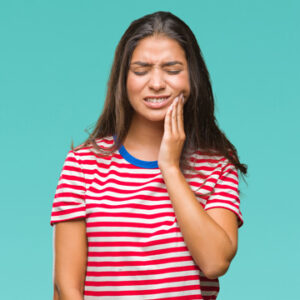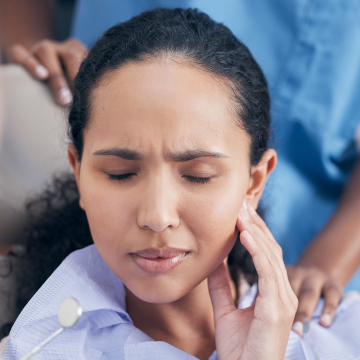 SANTA CRUZ, SCOTTS VALLEY CA
SANTA CRUZ, SCOTTS VALLEY CA
Teeth can hurt for many reasons, and most of them will be fairly obvious: an accident resulting in a blow to the mouth or maybe eating something that is very cold. Some kinds of dental pain, on the other hand, have fewer clear origins. The eruption of wisdom teeth, for instance, can cause discomfort, and at first, it may not be entirely clear what is causing it.
Three sources of dental discomfort are fairly common. What are they, and what can be done about them?
Tension and sinus headaches
Weather changes can sometimes cause sinus pressure headaches, and these can sometimes be felt in the form of throbbing in the nerves of the teeth. Tension headaches can sometimes work the same way. For teeth that ordinarily do not hurt but occasionally do after a stressful day at work, or if they ache just before an unseasonably warm or cold day, this is likely the culprit.
Cavities and other damage to teeth
Cavities are caused when bacteria in the mouth produce acid, which wears away the teeth’s enamel. This causes pits, then tiny holes, in the enamel. These holes, in turn, expose the softer tissue under the enamel, called dentin, and acid can wear holes into that, too. This allows for holes that lead to the nerve inside the teeth, causing pain when eating or drinking anything hot, cold, sweet or acidic; sometimes the simple act of chewing will cause teeth to hurt.
Other damage to teeth can produce a similar outcome; teeth that are cracked or chipped, even if the crack or chip did not cause pain when it occurred, can create a path to the dental nerves (and tooth pain).
Cavities are often difficult to spot for those who have them, and even chipped teeth can go unnoticed. But for pain that happens while eating, or tooth pain in general, this is a likely cause.
Bruxism (teeth grinding)
Bruxism (which comes from the Greek word bruche, which means “grit one’s teeth”) typically refers to excessive tooth-grinding that happens when a person is asleep. Under these circumstances, sufferers are not intentionally grinding their teeth; in fact, they may not even be aware of it until their teeth and jaws hurt in the morning. Grinding can act similarly to decay: it can wear down the enamel and reach the dentin, creating small openings into the dental nerves.
Bruxism often occurs with obstructive sleep apnea. In this condition, the soft tissue in the mouth relaxes in deep sleep, causing the tissue to block the airway and the brain to wake up to restore breathing. In more than half the cases of obstructive sleep apnea, bruxism is also present. Some scientists think the grinding motion is related to the waking process, and one study suggests that the grinding is the way by which the brain wakes up the sleeper.
Bruxism can cause other kinds of dental pain. Since grinding often requires that the teeth be tightly clenched, stress can be put on the temporomandibular joint (TMJ). These joints (one on each side of the jaw) connect the lower jaw to the skull and allow the mouth to open and close. Discomfort in the TMJ can make chewing, drinking, swallowing, speaking, singing, or even yawning very painful.
What can be done about tooth pain?
The first step is to make an appointment with a dentist. Ebrahimian Integrative Dentistry offers a wide range of dental services in the Scotts Valley and Santa Cruz area and can address sources of tooth pain. In addition to general dentistry, which can fix cavities or help make sure they never appear, Drs. Max and Ariana are experts in diagnosing tooth pain caused by grinding, especially if it is caused by obstructive sleep apnea. The office also offers oral appliance therapy, in which patients are fitted with a device similar to a mouthguard or retainer that is placed over the top and bottom teeth before bed. This appliance not only protects the teeth but pushes the lower jaw slightly forward so that when the tissues relax, they no longer obstruct airflow. An appliance will allow the wearer to drink and talk, if necessary. If you’re experiencing tooth pain, the dentists at Ebrahimian Integrative Dentistry can determine the source and correct it. Call (831) 824-5111 to make an appointment today.



